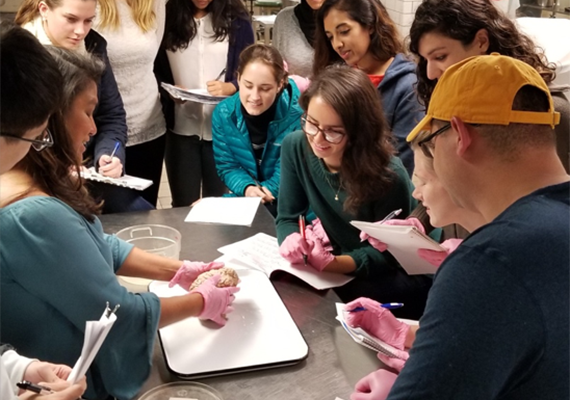Neuropsychology Research

Neuropsychology is a branch of psychology that examines relationships between the brain and behavior, especially in the case of individuals with neurological compromise. The Department of Psychological and Brain Sciences has two labs dedicated to neuropsychology research topics.
The overall focus of the Applied Neuro-Technologies Lab is to study the cognitive contributions of complex everyday activities and incorporate innovative technologies. As a result, our work can be described as applied clinical research that is built on an interdisciplinary and collaborative model.
Primary Lines of Research:
1) Driving capacity following neurological compromise
For clinicians working with individuals with neurological compromise, the task of determining whether they are ready to return to driving can be daunting. The body of existing research has defined the physical, visual and more recently, cognitive demands of driving. Yet, clinical translation of this work remains limited. In the ANT Lab, we have pushed forward several components of this literature, including:
- Defining cognitive contributions of driving across neurological populations
- Investigating the role of driving simulation for evaluating driving capacity
- Investigating improved methods of driving outcome
Our long-term goal is to better define driving outcome and contribute to changes in our clinical approach of determining driving capacity for individuals with neurological compromise.
2) Cognitive contributions of functional everyday activities
Our lab aims to show that behavioral interventions can offer a significant improvement in quality of life, long before any physiological brain changes can be observed. As such, our interest in this research has focused on behavioral observations, in conjunction with new technologies that can support new clinical measures that increase the ecological validity of our assessment (i.e., virtual reality).
3) Development and application of novel technologies for neurorehabilitation
"Interest in novel technologies comes from both my clinical experiences in rehabilitation medicine and my research using virtual reality simulation. In general, I hold the viewpoint that technology has already changed the way we live, and as such it is incumbent for psychologists to also seek the benefits of new technologies for improving our field." – Maria T. Schultheis, PhD
Current Neuropsychology Lab Research Projects:
- Vocational multitasking Ability in TBI: is sleep a contributing factor?
- Impact of Compensatory Recommendations on Consistency in Adherence to Behavioral Regimens in Traumatic Brain Injury
- Insight in TBI: What is its role in the relationship between cognition and vocational outcomes?
- Multitasking and Multiple Sclerosis: A cognitively Based Approach to Vocational Rehabilitation
- Investigating Emotional Intelligence in Mild-Moderate TBI
- Improving Visual Attention with Transcranial Magnetic Stimulation (TMS) in individuals with Right Parietal Disorders due to Stroke
Contact:
Primary Investigator:
Maria T. Schultheis, PhD, Interim Dean, College of Arts and Sciences, Professor
sg94g745@drexel.edu
Jocelyn Ang, Research Coordinator
jga27@drexel.edu
Visit the Applied Neuro-Technologies Lab Website
Drexel Ladder Lab is an educational neuropsychology research lab focused on understanding the cognitive and neuroanatomical underpinnings of developmental learning disorders, particularly Down syndrome and Fragile X syndrome.
Current Neuropsychology Research Projects:
- A study of the cognitive predictors of reading comprehension impairments in youth with Down syndrome
- The utility of an iPad-based memory test to evaluate the nature of memory impairments in youth with Down and Fragile X syndromes
- A study of parenting behaviors and their relation to executive functioning in youth with Down syndrome
The long-term goal of our psychology research is to identify novel targets of treatment for the amelioration of the cognitive weaknesses associated with different neurodevelopmental disorders.
Contact:
Nancy Raitano Lee, PhD, Assistant Professor of Psychology
nrl39@drexel.edu
Rebecca Laquaglia, Research Coordinator
215.553.7164 | ladder_lab@drexel.edu
Visit the LADDER Lab Website